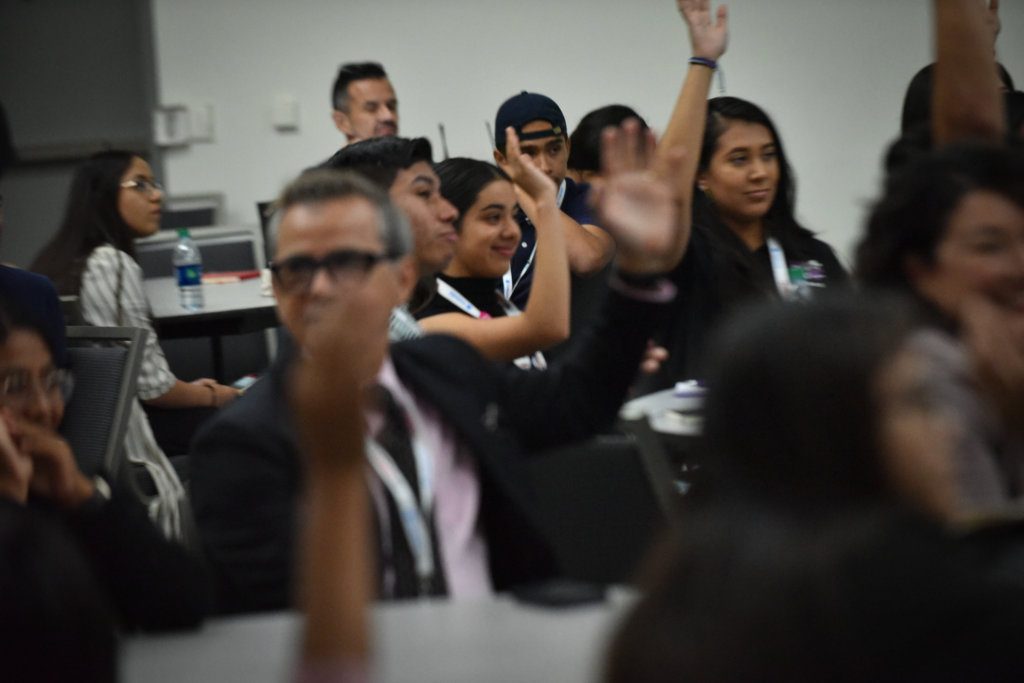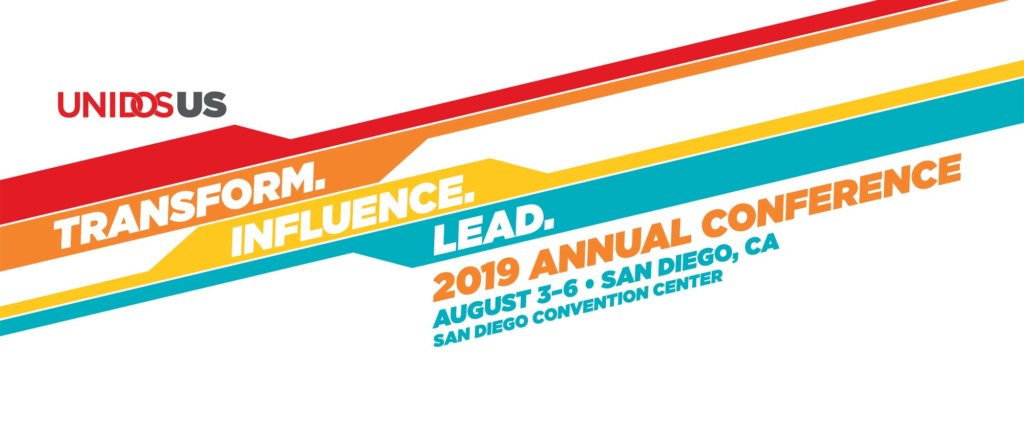Voting is an act of self-defense
What happens when civics isn’t taught in school, and how we can close the civic participation gap
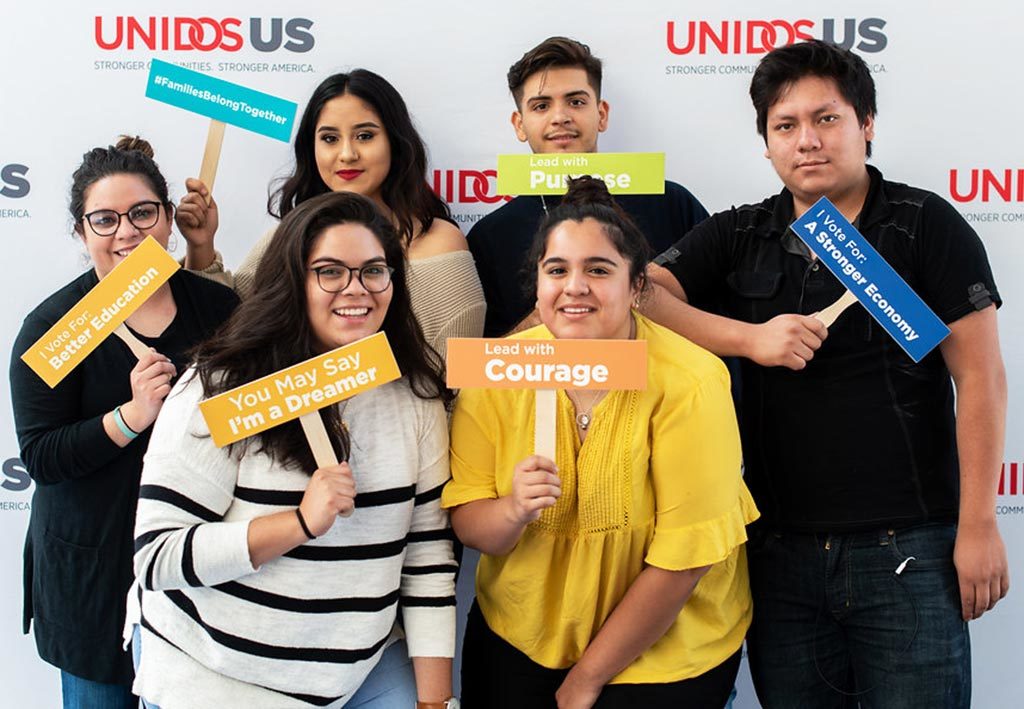
The last election was a rude awakening for a lot of us. America showed some of its worst sides, and all the progress we’ve made was called into question. As we look to the midterms this November, we need to make sure all voices are represented with our vote.
As one of the youngest and fastest-growing populations in the country, Latinos are poised to sway a lot of races in November. But even though about one million Latino citizens turn 18 each year, many of them have never been taught about the power of their vote.
The issue stems from different causes, one of them being a lack of civics education in school. Ileana Gonzalez, an assistant professor at Johns Hopkins School of Education, claims that curricula are being developed “to basically teach students stupid. They can go through the whole process and still graduate, but your education didn’t prepare you for the future,” she says.
“Right now, youth are getting a crash course in civics education,” said Clarissa Martinez de Castro, Deputy Vice President of Policy and Advocacy at UnidosUS. She and Gonzalez discussed the intersection of voting and education on a panel at the 2018 UnidosUS Annual Conference in Washington, DC.
You can view the full session below:
KEPT IN THE DARK
For every Latino who voted in 2016, there was another Latino who could have voted, but wasn’t registered, Martinez de Castro said.
“The Latino electorate is growing at a fast clip,” she said. The 12 million who voted in 2016 was a 13% increase from the last presidential election. “Imagine if the 12 million Latinos who voted registered one Latino. We would close that gap.”
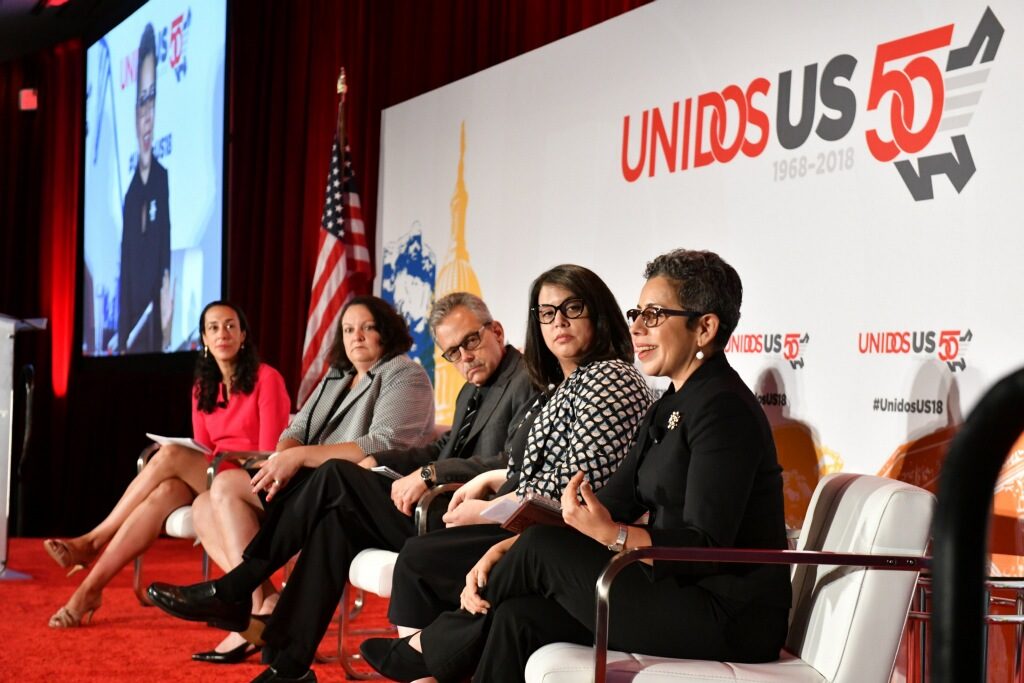
The absence of civic education in school is only worsened after graduation, when no one courts the Latino vote during election season. Using her arms to simulate a line graph, Martinez de Castro illustrated how candidates and parties don’t engage Latinos to let them know that their vote matters. “As the pool of potential Latino voters [rise,] the investment in voter registration [declines,]” she said.
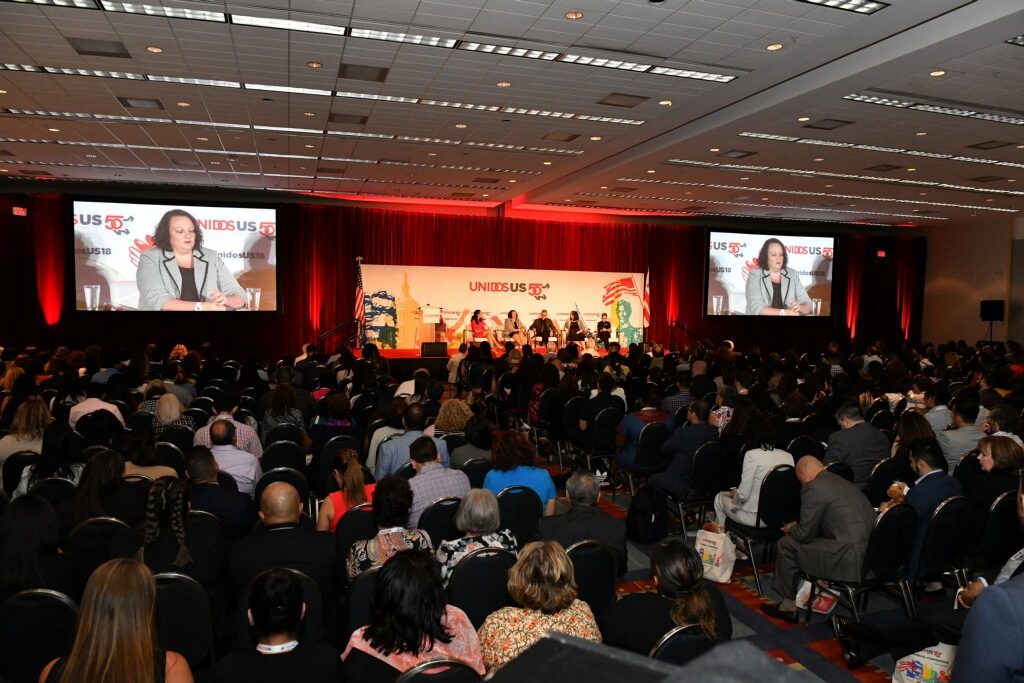
Martinez de Castro has overseen UnidosUS’s canvassing and voter registration work, highlighting the need to mobilize Latinos voters across the country. “You go out to places like Colorado and you’ll hear people say, ‘Nobody’s ever talked to me about voting,’” Martinez de Castro said.
Despite the lack of engagement, or possibly even along with it, Latinos are blamed for low turnout during elections. “Those who are oppressed are always seen as the negative, the wrong,” Gonzalez said. “When you look at voting and how it’s always their fault for not voting, it’s classic oppression.” But as Martinez de Castro pointed out, Latino citizens can go their whole lives without being courted for their vote.
TEACHING KIDS STUPID
“Schools don’t teach civics like they used to,” Gonzalez said. The panel explained that more and more students today can get through 12 years of school without understanding how government works, or how they fit into the democratic process.
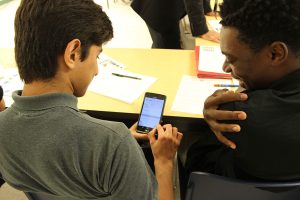
They discussed Texas legislators deciding what can go into textbooks as an example. “If you look at the body of people making those decisions, they shouldn’t be writing a recipe, let alone deciding what goes into textbooks,” Martinez de Castro said.
The example shows the dangerous precedent for legislators, and not educators, determining what kids learn, and how children can manage to earn a diploma without knowing how they fit into one of the nation’s most important process, or “teaching kids stupid,” as Gonzalez said.
VOTING FOR SOLIDARITY
To fix the issue, and to make sure each eligible Latino shows up to vote in November, the panel believes we have to address the culture of voting, and let kids know what it means to be a citizen.
“Now, more than ever, voting is an act of self-defense, and of community solidarity,” Martinez de Castro said.
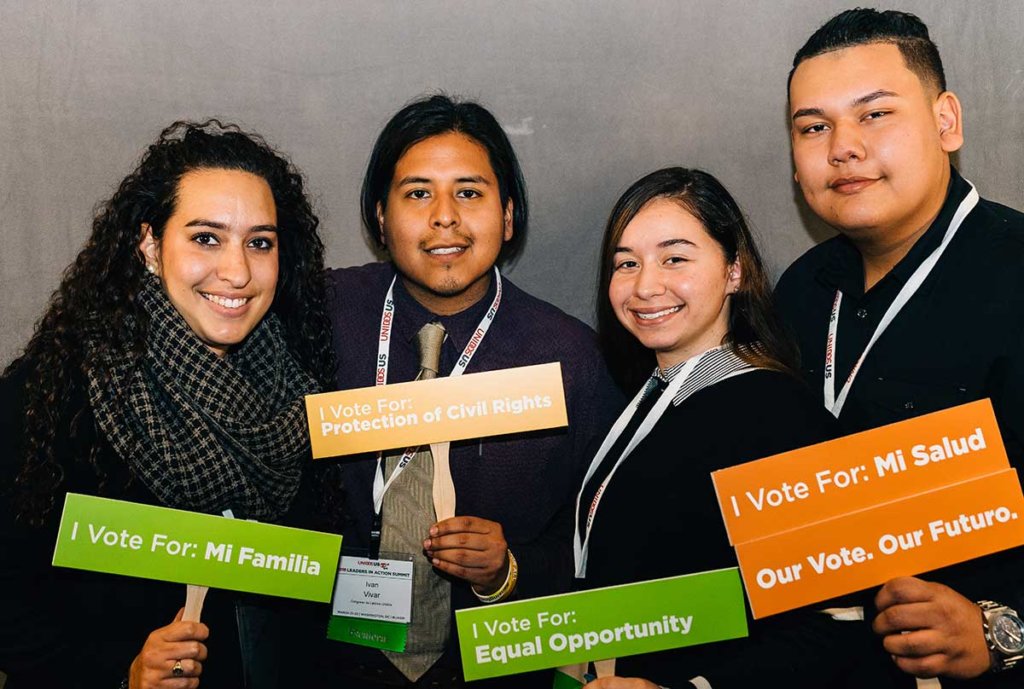
Showing Latinos the reality of that statement, and how their vote helps define the path the country takes moving forward, will be the key to registering and educating as many voters as possible.
One method is the High School Democracy Project, a six-lesson curriculum that clarifies the voting process, and even picks up the slack from a lack of civics education, including explaining how our government works, and how we, as citizens, play a part.
There are also online and mobile tools like BecomeAVoter.org that make registering simple and, depending on the state, allow you to help other people register.
Martinez de Castro’s vision for a new generation of voters is that of a group exercising their rights together, instead of going to the polls alone. “When the time comes, we can go together,” she said, “and not make it an isolated act, which voting can sometimes feel like, but a family and community act.”
By John Marth, Senior Content Specialist, UnidosUS
MORE CONTENT LIKE THIS
http://blog.unidosus.org/2018/07/16/2018-unidosus-annual-conference-youth-voting/
http://blog.unidosus.org/2018/07/23/janet-murguia-pennsylvania-centro-hispano-daniel-torres/

